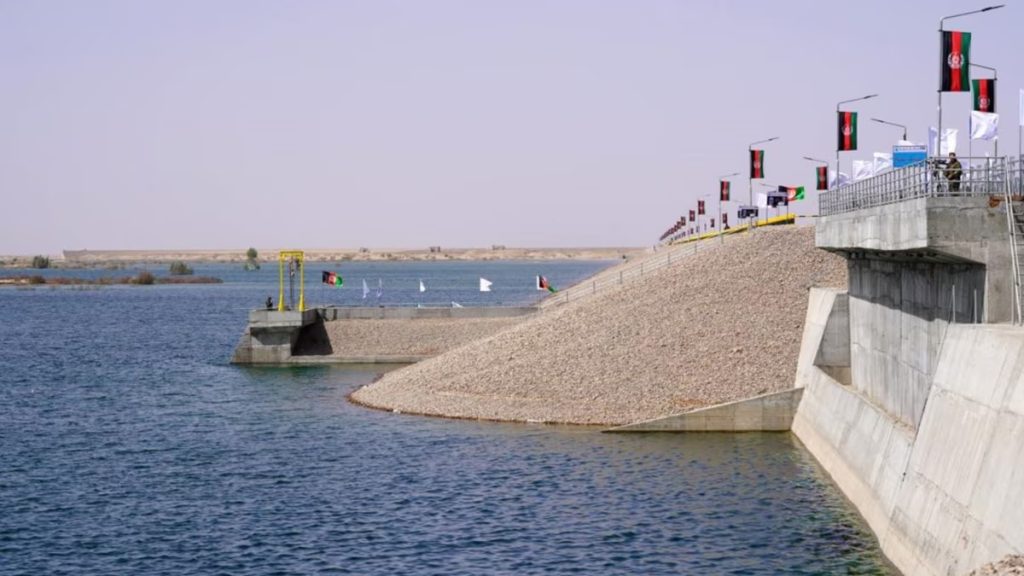Afghanistan’s construction of the Pashdan Dam in Herat Province has sparked significant tension with Iran. Iranian officials have expressed strong concerns that the dam will disrupt the flow of the Harirud River, which is a vital source of water for Iran’s eastern regions.
Esmaeil Bozorgzadeh, a spokesperson for Iran’s water industry, emphasized that such unilateral actions threaten the water supply for millions of Iranians. Beyond the immediate water crisis, this development is fueling political and environmental challenges that are deepening the divide between the two neighbors.
Iran relies heavily on the Harirud River to sustain its eastern provinces, particularly Khorasan Razavi. The river supports agriculture, drinking water supplies, and the livelihoods of countless communities in the region.
The Pashdan Dam, once operational, is expected to significantly reduce the river’s flow into Iran, creating severe water shortages. This has raised alarms among Iranian policymakers, who view the dam as a direct threat to their national interests.
The environmental consequences of the dam’s construction are also a major concern. With reduced water flow, Iran’s eastern agricultural lands are at risk of turning barren. Local biodiversity, which depends on the river’s ecosystem, could face irreversible damage.
The drying of water bodies has historically led to dust storms and environmental degradation, compounding the challenges faced by affected communities. Iran has pointed out that such ecological disruptions not only threaten its regions but could also have broader implications for the region’s stability.
Iranian officials argue that Afghanistan’s decision to proceed with the dam violates bilateral agreements designed to ensure equitable water sharing. These agreements were established to maintain a fair distribution of the Harirud River’s resources and prevent disputes.
Iran’s discontent stems from Afghanistan’s lack of adherence to these agreements, as the Taliban has pushed forward with the project without consulting its neighbor. This move is seen as an act of defiance and disregard for international water-sharing norms.
While the dam dispute has strained Afghanistan-Iran relations, it also highlights Afghanistan’s increasing isolation on the global stage. Since the Taliban’s return to power, Afghanistan has struggled to gain international recognition. The lack of formal recognition has left the country diplomatically marginalized and economically vulnerable.
Without the backing of international allies, Afghanistan has limited avenues to negotiate disputes or secure financial aid. Iran’s vocal opposition to the Pashdan Dam underscores Afghanistan’s inability to maintain positive relations with its neighbors while addressing domestic infrastructure needs.
This isolation has broader implications for Afghanistan’s future. The Taliban’s refusal to adhere to global norms, particularly regarding human rights and inclusivity, has made it difficult for the international community to engage constructively with the regime.
Neighboring countries, including Iran, are increasingly viewing Afghanistan as an unreliable partner in regional cooperation. The dam dispute adds to a series of challenges that are eroding Afghanistan’s ability to function as a cooperative and integrated member of the region.
The escalating tension between Iran and Afghanistan over the Pashdan Dam is a symptom of the broader challenges facing the Taliban regime. By pursuing unilateral projects without considering the concerns of neighboring countries, the Taliban risks further alienating itself. Iran’s warnings, including potential military action, underscore the seriousness of the dispute.
This hard stance highlights the growing rift between the two nations and adds another layer of complexity to an already strained relationship.
The Afghan people, unfortunately, bear the brunt of these tensions. The Taliban’s governance style, marked by isolationist policies and disregard for international norms, is pushing Afghanistan further into chaos.
The lack of diplomatic recognition, coupled with disputes like the Pashdan Dam, is preventing the country from achieving economic growth and regional stability. Afghanistan’s limited ability to resolve such disputes or secure favorable outcomes underscores its deepening vulnerabilities.
The Pashdan Dam controversy exemplifies the Taliban’s challenges in balancing domestic development with international diplomacy. While infrastructure projects like dams are essential for Afghanistan’s growth, pursuing them without addressing the concerns of neighboring countries undermines their benefits.
Iran’s strong opposition to the dam reveals the far-reaching consequences of neglecting cooperative frameworks. Afghanistan’s isolation is not just a diplomatic issue; it is a barrier to progress and stability for the entire region.
As tensions rise, the future of Afghanistan’s relations with its neighbors remains uncertain. The Taliban must recognize that isolation and defiance will only deepen the country’s problems.
Engaging in meaningful dialogue, respecting agreements, and addressing regional concerns are crucial steps toward building trust and stability. Without these measures, Afghanistan risks becoming increasingly alienated, with its people paying the ultimate price for their leaders’ decisions.


